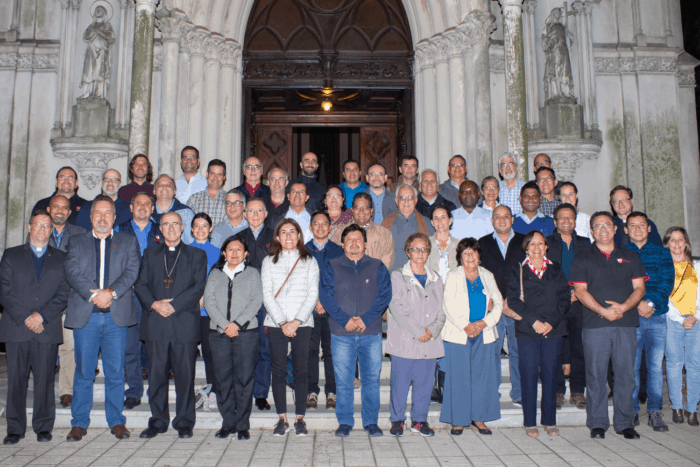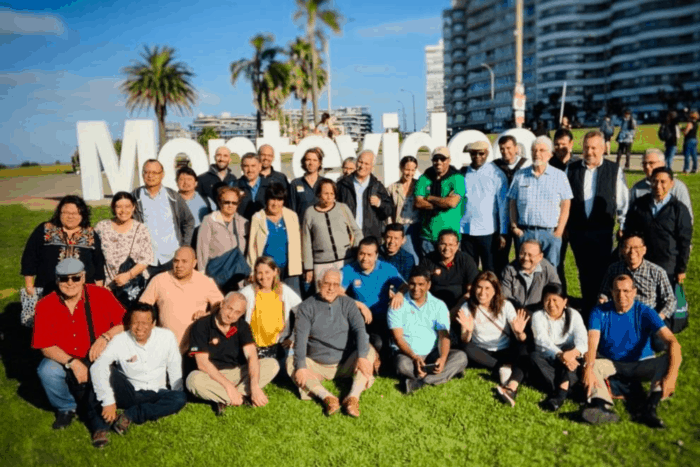Nicaragua is suffering a profound social fracture and polarization of visions due to the political, social and humanitarian crisis that began to worsen just over a year ago. Regardless of political positions, the at least 320 deaths according to figures from the IACHR, the hundreds of people arbitrarily detained and the thousands of migrants and asylum seekers (together, some 60,000 people) in other countries, are objective signs of a systematic violation of human rights.
In this hostile and difficult context for peaceful social coexistence, the work of Fe y Alegría is to promote a culture of peace and reconciliation in classrooms, fostering dialogue, respect for diversity of thought, and forgiveness; Through this approach, Fe y Alegría seeks to generate a climate of emotional stability throughout the educational community: children, parents, teachers, and management personnel.
Recently, our colleagues from Fundación Entreculturas, Marta del Barrio and Gemma López traveled to Nicaragua, a country of special importance to Gemma given that she was a volunteer there and lived there for 10 years.
“The peacemaking role of Fe y Alegría is not an easy task. The directors and teachers told me that due to the existing polarization, they are afraid to express opinions about what is happening in the country; they live in fear of violent groups taking over the schools and taking students out of the classrooms; or that they continue to live with the uncertainty of whether raising the flag and singing the national anthem can be interpreted as subversion. All this has led to a situation where despite apparent “normality”, every day they live with tension.
Together with the important social role played by Fe y Alegría at this time, in neighborhoods that are already vulnerable and with a high presence of violence, other sister organizations of the Society of Jesus play an important role in facing the crisis. The UCA tries to continue promoting the critical human growth of students, from a vision of defense of human rights; In spite of the pressure that this institution suffers, it has readapted its curriculum in blended modalities that respond to the promotion of student safety. On the other hand, Jesuit Migrant Service in Nicaragua provides legal information and safe routes to those who choose to leave the country.
Gemma adds: “I left Nicaragua with the certainty that our partner organizations are where they should be: with the people, in one way or another; sometimes risking freedom or even life, while fostering a revolution of tenderness that is capable of counteracting distrust, fear, hatred, corruption and injustice.”



